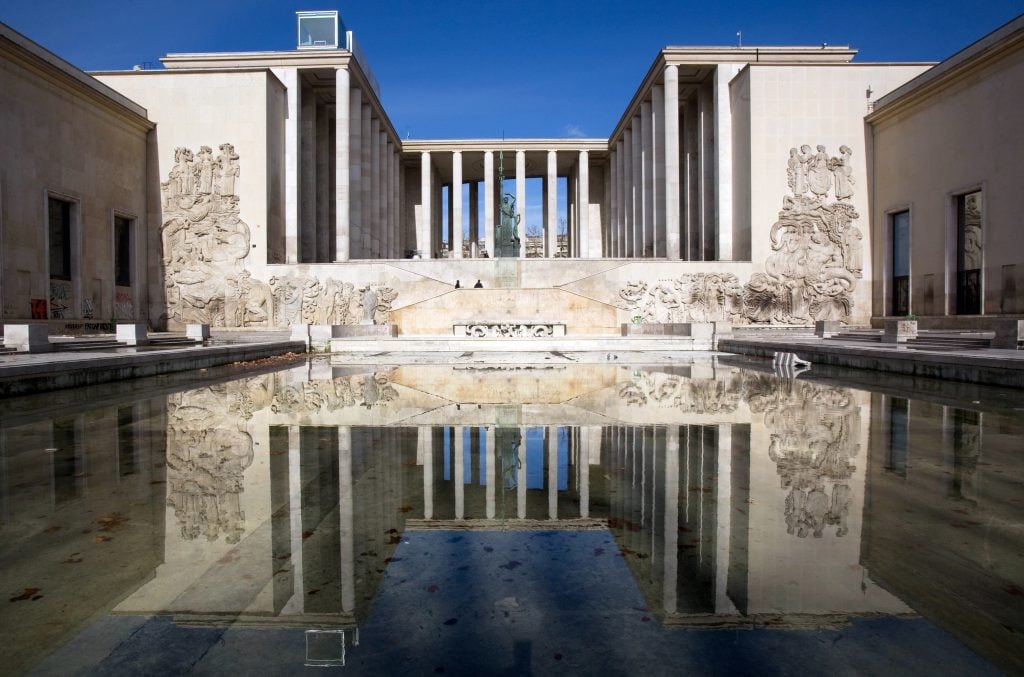Anne Hidalgo, the mayor of Paris, has ordered an official investigation into allegations of sexual harassment, racism and sexism in several of the city’s municipal museums following a damning report in French media last month.
The daily newspaper Libération reported in early April that it had received “more than 20 testimonies” of “sexual and moral harassment, homophobic, racist and misogynistic remarks and even aggression” from staff at six of the city’s 14 museums. The institutions are part of the umbrella organization, Paris Musées, which was created in 2013, shifting oversight of the museums from the city to a board of directors.
The newspaper’s investigation was sparked by a letter from a group of temporary workers at the Musée d’Art Moderne de la Ville de Paris, which was reportedly sent last summer to the museum’s management and to Paris Musées. It accused six civil servants of harrassment and mentioned specific lascivious gestures, such as a civil servant mimicking a blow-job to a temporary worker. One woman called the museum a “hostile jungle.”
“It’s far from the showcase image of the French capital that the prestigious establishment [of Paris Musées] claims, boasting 2.2 million visitors [across its museums] in 2021 despite closures linked to the Covid pandemic,” Liberation decried.
According to Libération, a preliminary investigation into the allegations was opened at the Musée d’Art Moderne de la Ville de Paris before being referred to the Paris public prosecutor’s office and then another body.
Libération also unearthed similar charges that had been leveled against other museums, including the Petit Palais, which organizes historical painting exhibitions; Palais Galliera, a fashion museum; and Musée Carnavalet, dedicated to the history of Paris.
A recurring finding based on witness statements, many of which were made anonymously, was that some civil servants on permanent contracts had been demeaning towards the temporary workers, who were mostly young and female. The ambience evoked is one of a power imbalance whereby some long-term civil servants believed they could act with impunity.
The report published in Libération prompted Hidalgo, who was the Socialist Party’s lagging candidate in the French presidential election last month, to call upon the General Inspectorate of the City of Paris to launch an investigation one week later.
According to Libération, Hidalgo asked the inspectors to check that “all the alerts have been taken into account and that responses have been provided.”
In a statement to Artnet News, Paris Musées said it “first wishes to affirm that protecting victims is an absolute priority for the establishment. We won’t tolerate any situations of impunity. While several museums have been affected in recent years by accusations of harassment, the situations remain very different from one museum to another.”
The statement added that all reports of harassment or discrimination were being looked into and “treated according to a rigorous and strictly supervised procedure. In some cases, steps have already been completed (Palais Galliera, Petit Palais, the Crypt and the Catacombs); in other cases, procedures are still underway (Musée d’Art Moderne de la Ville de Paris and Musée Carnvalet). Some situations may require longer investigative time, due to their complexity, but all of them are being handled.”
The process at each museum includes an action plan designed for “the immediate protection of the victim” by limiting contact with, suspending or removing the person accused of causing the harassment, as well as implementing supportive measures.
An investigation into allegations of harassment could lead to the wrongful party receiving a warning or reprimand from Paris Musées. More serious issues could be referred to the disciplinary council of the City of Paris which has sole jurisdiction for “disciplinary sanctions,” such as a suspension or dismissal.
Paris Musées would not divulge specific details about the staff involved on the grounds of confidentiality. However, it confirmed that a public sector worker who had been physically and verbally violent towards colleagues had been dismissed while another who had made a sexist remark had been suspended.
The establishment is hoping that the investigation launched at the behest of the City of Paris will “make it possible to establish a diagnosis” and “make recommendations” to improve efficiency across the various museums.
Paris Musées told Artnet New that it had implemented a training scheme to raise awareness of issues pertaining to sexual and moral harassment a few years ago. “Since 2019, more than 150 public sector workers have benefited,” the statement said.
Now, Paris Musées plans to beef up “prevention and training” to combat sexual and gender-based violence. It has presented its new “plan of action”, aimed at strengthening the protection of victims and processing reports, to the trade unions representing workers at the museums.






